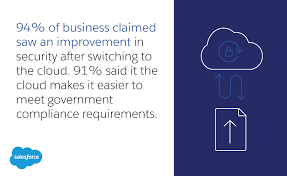Exploring Cloud Computing and the Leading Cloud Technology Providers
The concept of cloud computing has evolved significantly over the past 60 years, with its modern form emerging in 2002 when Amazon, seeking efficient marketplace expansion, laid the groundwork for what we know today.
Amazon Web Services (AWS), its cloud services subsidiary launched in 2006, now stands as the largest Cloud Service Provider (CSP) globally.
This insight digs into the cloud infrastructure market landscape, spotlighting dominant players and more.
What is a Cloud Service Provider?
A Cloud Service Provider (CSP) leases technology, infrastructure, and expertise to businesses and individuals for cloud computing purposes, spanning online storage, compute, and networking accessible via the Internet.
CSPs manage and operate multiple global data centers housing physical infrastructure like servers, hard drives, and cooling systems.
Users worldwide can access this cloud infrastructure anytime, anywhere, purchasing capacity on a pay-as-you-go basis (usage-based pricing).
Key Benefits of Using a CSP vs. Building On-Premises
Companies often opt against building in-house cloud infrastructure due to cost, expertise requirements, and ongoing maintenance. Leveraging a robust CSP delivers numerous advantages, such as:
- Low capital outlay: Avoid large upfront infrastructure investments, paying instead for usage.
- Faster time-to-market: Skip procurement, installation, and optimization to expedite product and service launches.
- Agility: Quickly pivot to explore new markets or lines of business without infrastructure constraints.
- Cloud computing services: Access Infrastructure-as-a-Service (IaaS), Platform-as-a-Service (PaaS), Software-as-a-Service (SaaS), and Serverless Computing.
- Optimal delivery models: Choose from public, private, hybrid, and multi-cloud services.
- Pay-as-you-go pricing: Pay only for consumed resources without long-term contracts or upfront fees.
- Managed services: Benefit from varying degrees of infrastructure control managed by the CSP.
- Disaster recovery: Safeguard data with multi-region backups for seamless continuity in case of disruptions.
CSPs also handle infrastructure testing, updates, security, and optimization, freeing businesses to focus on core operations. However, some challenges come with this cloud model.
Challenges of Using a Cloud Technology Providers
Primary challenges of CSPs include:
- Data confidentiality: Sharing remote servers for data processing raises concerns about security and compliance.
- Data security: Cloud data transfers and access increase vulnerability to cyber threats and data breaches.
- Infrastructure control limitations: Businesses seeking extensive backend control may face varying degrees of constraint.
- Vendor lock-in: Over-reliance on a single CSP risks challenges if the provider introduces unfavorable changes or pricing.
Market Share of the Big Three CSPs (AWS, Azure, GCP)
Amazon Web Services (AWS), Microsoft Azure, and Google Cloud Platform (GCP) collectively dominate the cloud infrastructure market, holding 66% market share globally, according to Synergy Research Group.
Key Cloud Technology Providers in 2023
Leading cloud providers enabling global innovation include:
- Amazon Web Services (AWS): Offering over 200 cloud services with a focus on Infrastructure-as-a-Service (IaaS), boasting a vast global footprint.
- Microsoft Azure: Providing hybrid cloud services appealing to enterprises and Microsoft-centric organizations.
- Google Cloud Platform (GCP): Distinguished by AI, ML, Data Analytics, and Kubernetes expertise.
- Alibaba: Dominating Asia’s cloud market, serving enterprises, SMEs, and governments.
- IBM Cloud: Supporting on-premises, hybrid, and multicloud deployments for seamless digital transformation.
- DigitalOcean Cloud: Targeting SMBs and developers with scalable compute and storage solutions.
- Salesforce Cloud: Pioneering Software-as-a-Service (SaaS) across marketing, sales, and customer service.
- Tencent Cloud: Offering diverse cloud services across multiple regions, particularly in Asia.
- Oracle Cloud Infrastructure (OCI): Delivering comprehensive cloud services with a focus on databases and custom apps.
- Huawei Cloud: Expanding globally to serve businesses across 170 countries.
- Dell Technologies Cloud: Integrating VMware software and Dell infrastructure for enterprise-grade hybrid cloud solutions.
Cloud computing continues to evolve, with market leaders and niche players alike driving innovation and transformation across industries.
Content updated December 2023.













